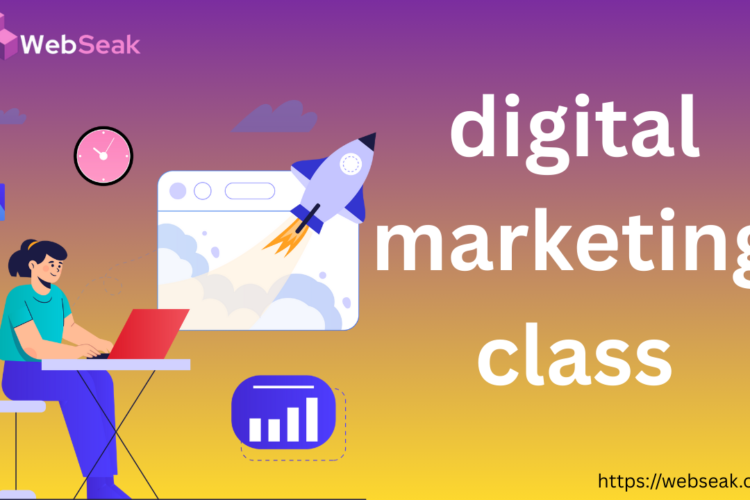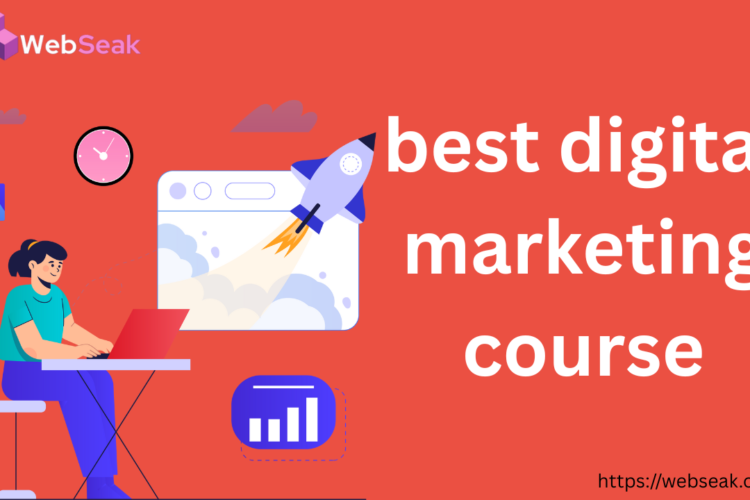Digital marketing services are essential for businesses looking to increase their online presence, reach a larger audience, and convert leads into customers. In today’s digital age, having a strategic online marketing approach is key to standing out in competitive markets. This guide explores the types of digital marketing services available, their benefits, and how they can transform your business growth.
Table of Contents
Table of Contents
- What Are Digital Marketing Services?
- Key Benefits of Digital Marketing
- Types of Digital Marketing Services
- Choosing the Right Digital Marketing Agency
- Essential Digital Marketing Tools
- Case Studies of Digital Marketing Success
- Frequently Asked Questions (FAQs)
What Are Digital Marketing Services?
Digital marketing services encompass a range of techniques used to promote a business online and drive traffic to a website. Unlike traditional marketing, which focuses on print and media advertising, digital marketing leverages online channels like search engines, social media, email, and websites to connect with target audiences.
These services cater to businesses of all sizes, whether it’s a local shop or a multinational corporation, helping them establish and strengthen their online presence, build brand awareness, and improve their conversion rates.
Key Benefits of Digital Marketing
Digital marketing services offer numerous advantages that can greatly impact a business’s success. Here are some of the primary benefits:
- Cost-Effective: Digital marketing is often more affordable than traditional marketing, allowing even small businesses to reach large audiences without overspending.
- Targeted Reach: With tools like Google Ads and social media advertising, you can specifically target audiences based on demographics, interests, and behaviors, ensuring higher ROI.
- Measurable Results: Digital marketing campaigns can be tracked and analyzed, allowing you to understand what works and what doesn’t, making it easier to adjust strategies.
- Enhanced Engagement: Digital marketing facilitates two-way communication with customers through social media, live chats, and interactive content, fostering stronger relationships.
- Higher Conversion Rates: By targeting specific customer segments, businesses can improve conversion rates and see an increase in sales.
Image Suggestion:
A graphic illustrating the key benefits of digital marketing, highlighting engagement, reach, conversion rates, and cost-effectiveness.
Types of Digital Marketing Services
Digital marketing services include a variety of specialized strategies designed to attract, engage, and convert online audiences. Here’s a breakdown of the most popular types:
1. Search Engine Optimization (SEO)
SEO is the process of optimizing a website to rank higher in search engine results, making it more visible to potential customers. SEO involves keyword research, on-page and off-page optimization, link building, and content creation. By enhancing a site’s SEO, businesses can attract organic traffic, reduce reliance on paid ads, and establish credibility in their field.
2. Pay-Per-Click Advertising (PPC)
PPC is a paid advertising model where businesses pay a fee each time their ad is clicked. Platforms like Google Ads and Bing Ads are popular PPC channels, while social media networks like Facebook and Instagram offer highly targeted ad placements. PPC campaigns can yield quick results and are perfect for businesses looking to drive traffic instantly.
3. Social Media Marketing
Social media marketing uses platforms like Facebook, Instagram, Twitter, LinkedIn, and TikTok to engage audiences, build brand awareness, and drive traffic to a website. Through regular posts, stories, and paid ads, businesses can create a loyal online community and generate leads. Social media marketing also enables direct interaction with customers, making it a valuable tool for reputation management and customer support.
4. Content Marketing
Content marketing focuses on creating valuable and informative content that attracts and engages a target audience. This can include blog posts, articles, videos, infographics, and whitepapers. By providing helpful and relevant content, businesses can position themselves as industry leaders and build trust with potential customers.
5. Email Marketing
Email marketing is one of the most cost-effective digital marketing methods, involving sending targeted messages to subscribers to inform, engage, or nurture leads. Businesses use email marketing to promote products, announce sales, share news, or deliver educational content. Personalized email campaigns often achieve high open and conversion rates when designed with a specific audience in mind.
6. Affiliate Marketing
Affiliate marketing involves partnering with third-party marketers or influencers who promote a business’s products or services in exchange for a commission. This strategy helps businesses reach new audiences and only pay when results (e.g., sales, leads) are achieved. Affiliate marketing can be highly effective for companies with a scalable sales model.
7. Influencer Marketing
Influencer marketing leverages individuals with large social followings to promote a product or service. Collaborating with influencers who align with your brand values can help improve brand awareness, credibility, and reach within target markets.
8. Conversion Rate Optimization (CRO)
CRO focuses on improving the percentage of website visitors who take a desired action, such as filling out a form or purchasing a product. By analyzing user behavior and making data-driven adjustments to a website, businesses can enhance user experience and increase conversions.
Choosing the Right Digital Marketing Agency
With so many digital marketing agencies to choose from, it’s essential to select a partner that aligns with your business needs. Here are some factors to consider:
- Specialization: Some agencies specialize in specific areas, such as SEO or social media, while others provide full-service solutions. Choose one that meets your unique marketing goals.
- Experience and Portfolio: Review the agency’s case studies and client portfolio to gauge their experience and track record in delivering results.
- Transparency and Reporting: A good agency should provide clear communication, detailed reports, and regular updates on campaign progress.
- Industry Knowledge: Agencies with experience in your industry may have a better understanding of your target audience and the strategies that work best.
- Budget-Friendly Options: Determine your budget beforehand and discuss pricing to ensure the agency can deliver within your financial scope.
Image Suggestion:
An infographic showcasing steps for selecting the right digital marketing agency, highlighting factors like specialization, experience, transparency, and budget.
Essential Digital Marketing Tools
Effective digital marketing relies on a set of tools that help businesses analyze, plan, and execute their campaigns successfully. Here are some essential tools:
- Google Analytics: A must-have tool for tracking website traffic, user behavior, and other important metrics.
- SEMrush and Ahrefs: SEO tools that help with keyword research, competitor analysis, and backlink tracking.
- Hootsuite and Buffer: Social media management tools that allow scheduling, posting, and monitoring across multiple platforms.
- Mailchimp and Constant Contact: Email marketing platforms that enable businesses to create, send, and track email campaigns.
- Canva: A design tool that helps create visually appealing graphics for social media, ads, and blogs.
- Hotjar: A user behavior tracking tool that provides insights into how visitors interact with your site, identifying opportunities for CRO.
Using these tools can help you streamline your digital marketing efforts, save time, and achieve more accurate results.
Case Studies of Digital Marketing Success
Understanding how digital marketing has transformed other businesses can provide valuable insights. Here are a few examples of successful digital marketing strategies:
Case Study 1: E-commerce Success with PPC and Social Media
A fashion e-commerce brand used a combination of PPC ads and Instagram influencers to increase brand visibility and drive traffic to their site. By targeting specific demographics and creating visually appealing ads, they boosted sales by 300% in one quarter.
Case Study 2: Local Business Growth with SEO and Content Marketing
A local HVAC company implemented an SEO and content marketing strategy, optimizing their website for local keywords and publishing blogs on home maintenance tips. This increased their organic traffic by 150% in six months, bringing in more qualified leads.
These examples demonstrate how strategic digital marketing can deliver measurable results and help businesses grow.
Frequently Asked Questions (FAQs)
1. What types of businesses benefit from digital marketing services?
Virtually all businesses can benefit from digital marketing. From small businesses to large corporations, digital marketing helps reach target audiences, increase visibility, and drive revenue growth.
2. How long does it take to see results from digital marketing?
The timeframe varies depending on the strategies used. SEO and content marketing typically take several months, while PPC and social media ads can produce faster results. Long-term success often requires ongoing effort.
3. What is the difference between SEO and PPC?
SEO focuses on optimizing a website to rank organically in search engine results, while PPC involves paid advertising on search engines. Both are effective in driving traffic but serve different roles within digital marketing.
4. How can I measure the success of my digital marketing campaign?
Metrics such as website traffic, conversion rates, engagement, and return on investment (ROI) can be tracked using tools like Google Analytics, Hootsuite, and email marketing platforms.
5. Do I need a digital marketing agency, or can I do it myself?
While it’s possible to handle digital marketing yourself, hiring an agency brings expertise, saves time, and provides access to specialized tools. Agencies also offer data-driven insights that can be challenging to achieve independently.
Conclusion
Digital marketing services provide essential tools and strategies for businesses to reach their target audiences, build brand awareness, and increase revenue. With various services like SEO, PPC, social media marketing, and email marketing, businesses have numerous options for achieving their marketing goals. By choosing the right digital marketing agency


